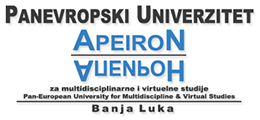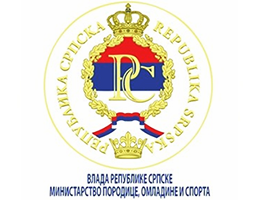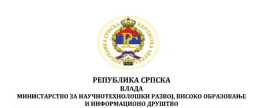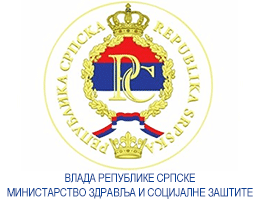Impact of Motor Learning on Overall Skill-Related Anxiety
Volume 12, Issue 1 (2022)
Volume 12, Issue 1 (2022)
Impact of Motor Learning on Overall Skill-Related Anxiety
Abstract:
The aim of this research is to determine the differences in participants’ overall anxiety and its factors before and after the motor skill learning process. A sample consisted of 96 examinees, college students who attended 3 learning sessions of a handspring vault in a crouch position. Students estimated their own anxiety by a questionnaire on a scale 1 – 4 at the beginning of the learning process and before the third session. Total anxiety is constructed of 3 factors: somatic, cognitive and self-confidence. The results showed that the highest manifestation of student’s anxiety was in the self-confidence referring to the highest (the worst) result, then in cognitive factor and the lowest in somatic factor. The average overall student’s anxiety reduced from 2.26 to 1.83, and the reduction (improvement) is manifested in all three anxiety factors. Anxiety reduction could be affected by adaptation processes, higher level of motor skill performance, controlled condition in the learning process, and interaction of all mentioned. The conclusion is that the motor learning can reduce the skill-related anxiety so it is recommended that high-anxiety participants are retained in the learning process.
Keywords:
anxiety factors, college students, learning process, motor skill
Full Text:
DOI:
References:
Bortoli, L., & Robazza, C. (1994). The motor-activity anxiety test. Relationships between scores on the motor activity anxiety test and the fear survey schedule. Percept motor skill, 79(1), 299-305.
Bortoli, L., & Robazza, C. (1995). Relationships between scores on the motor activity anxiety test and the fear survey schedule. Percep motor skill, 81(3), 1192-1194.
Carzoli, J. P., Haischer, M.H., Cooke, D.M., Shipherd, A.M., Johnson, T. K., Davis, E.P. & Zourdos, M.C. (2018). Acute Cognitive Anxiety is Positively Related to Maximal Strength Performance. Med Sci Sports Exerc, 50(5), 794.
Ducrocq, E., Wilson, M., Smith, T.J., & Derakshan, N. (2017). Adaptive Working Memory Training Reduces the Negative Impact of Anxiety on Competitive Motor Performance. J Sport Exerc Psychol, 39(6), 412-422.
Ekornas, B., Lundervold, A.J., Tjus, T., & Heimann, M. (2010). Anxiety disorders in 8-11-year-old children: Motor skill performance and self-perception of competence. Scand J Psychol, 51(3), 271- 277.
Englert, C., & Bertrams, A. (2013). Too Exhausted for Operation? Anxiety, Depleted Self-control Strength, and Perceptual-motor Performance. Self Identity, 12(6), 650-662.
Hordacre, B., Immink, M.A., Ridding, M.C., & Hillier, S. (2016). Perceptual-motor learning benefits from increased stress and anxiety. Hum Mov Sci, 49, 36-46.
Jones, J.G., & Cale, A. (1989). Relationships between multidimensional competitive state anxiety and cognitive and motor subcomponents of performance. J Sports Sci, 7(3), 229-240.
Kahraman, T., Savci, S., Ozdogar, A.T., & Gedik, Z. (2018). Effects of anxiety on motor imagery ability in patients with multiple sclerosis. Turk J Physiother Rehabil, 29(1), 19-26.
Larsen, R.J., & Buss, D.M. (2008). Psihologija ličnosti. Jastrebarsko: Naklada Slap. Lebedina Manzoni, M. (2007). Psihološke osnove poremećaja u ponašanju. Jastrebarsko: Naklada Slap.
Martens, R., Vealey, R.S. & Burton, D. (1990). Competitive anxiety in sport. Champaign, IL: Human Kinetics.
Milivojević, Z., (2010). Emocije. Zagreb. Mozaik knjiga.
Mišigoj-Duraković, M., et al. (2018). Tjelesno vježbanje i zdravlje. Zagreb: Znanje.
Moore, L.J., Vine, S.J., Cooke, A., Ring C., & Wilson M.R. (2012). Quiet eye training expedites motor learning and aids performance under heightened anxiety: The roles of response programming and external attention. Psychophysiology, 49(7), 1005-1015.
Mullen, R., & Hardy, L. (2000). State anxiety and motor performance: Testing the conscious processing hypothesis. J Sports Sci, 18(10), 785- 799.
Mullen, R., Jones, E.S., Oliver, S., & Hardy, L. (2016). Anxiety and motor performance: More evidence for the effectiveness of holistic process goals as a solution to the process goal paradox. Psychol Sport Exerc, 27(1), 142-149.
Nieuwenhuys, A., & Oudejans, R.R.D. (2017). Anxiety and performance: perceptual-motor behavior in high-pressure contexts. Curr Opin Psychol, 16(1), 28-33.
Oatley, K., & Jenkins, J.M. (2007). Razumijevanje emocija. Zagreb. Naklada Slap.
Oudejans, R.R.D., & Pijpers, J.R. (2009). Training with anxiety has a positive effect on expert perceptual-motor performance under pressure. Q J Exp Psychol,62(8), 1631-1647.
Runswick, O.R., Roca, A., Williams, A.M., Bezodis, N. (2018). The effects of anxiety and situation-specific context on perceptual-motor skill: a multi-level investigation. Psychol Res, 82(4), 708-719.
Skirbekk, B., Hansen, B.H., Oerbeck, B., Wentzel-Larsen, T., & Kristensen, H. (2012). Motor impairment in children with anxiety disorders. Psychiatry Res, 198(1), 135-139.
Smith, N.C., Burwitz, L., & Jakeman, P. (1988). Precompetitive anxiety and motor performance: A psychophysiological examination. J Sports Sci, 6(2), 115-130.
Stern, C., Cole, S., Gollwitzer, P.M., Oettingen, G., & Balcetis, E. (2013). Effects of Implementation Intentions on Anxiety, Perceived Proximity, and Motor Performance. Pers Soc Psychol Bull, 39(5), 623-635.
Vizek Vidović, V., Rijavec, M., Vlahović-Štetić, V., & Miljković, D. (2014). Psihologija obrazovanja. Zagreb. IEP-Vern.
Wenar, C. (2002). Razvojna psihopatologija i psihijatrija: od dječje dobi do adolescencije. Jastrebarsko. Naklada Slap.
Woolfolk, A. (2016). Edukacijska psihologija. Jastrebarsko. Naklada Slap.






